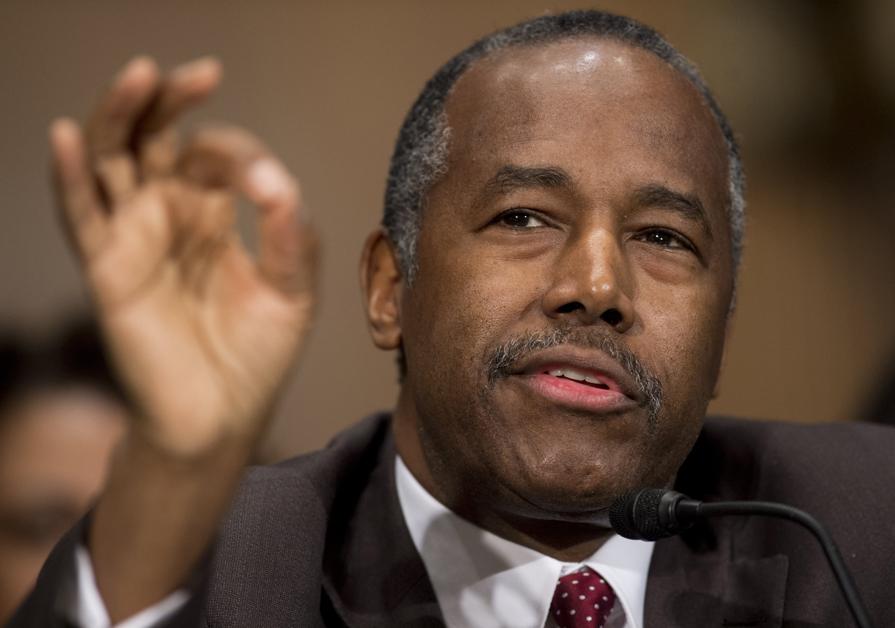
The problem with having total amateurs such as Ben Carson in the Cabinet is that, even when they’re right about something big, nothing’s likely to come of it.
President Trump’s choice of Carson, a neurosurgeon, to run the Department of Housing and Urban Development has alarmed antipoverty advocates and provoked lots of eye-rolling in broader public-policy circles. Carson has no expertise on housing issues, beyond having lived between four walls and under a roof. He has no grounding in government, and he’s at best indifferent to many of the low-income housing assistance programs that HUD administers.
But at least on paper — specifically, the prepared testimony he submitted before his confirmation hearing last month — Carson understands a crucial point that housing advocates often underplay: The overwhelming majority of Americans, including most poor Americans, buy or rent their homes through the private market. And when communities refuse to allow enough supply to keep up with demand, housing affordability becomes a problem up and down the income spectrum, and the entire economy suffers.
“Overly burdensome housing regulations are bad for everyone and are increasing income equality,’’ his statement declared, adding that it’s harder and harder for people who need to move to job-rich areas. That’s true.
Carson went on: “Complex webs of covenants and zoning ordinances across US cities — in particular for low-density development — superimposed on already highly segregated neighborhoods, have slowed integration.’’ Preach!
Over the years, cities and towns across the country decided that they were too good for starter homes — those modest bungalows or three-deckers or ranches built eight or more to the acre in tidy neighborhoods from coast to coast — and tightened their zoning rules accordingly. “There are very few neighborhoods where you can build a triple-decker,’’ Chris Herbert, the managing director of Harvard’s Joint Center for Housing Studies, said in an interview this past week.
Throughout Greater Boston, there are gleaming luxury towers instead of middle-class apartment buildings; instead of dense subdivisions of postwar Capes, there are McMansions on 3-acre lots far in the exurbs. “Homebuilders are definitely concentrating on higher-end homes,’’ Herbert says. “If you talk to [them], they say it’s harder to build smaller houses.’’
Alas, the national housing market is behaving like Boston’s. On Wednesday, The Wall Street Journal reported, based on trends in listings and searches on the real estate site Trulia, that there’s a glut of luxury listings on the market even as first-time buyers click around desperately for less expensive homes.
For Carson to do anything about this problem as HUD secretary, he’d have to overcome not just his own inexperience, but also the entire worldview of the president who appointed him. In theory, having a real estate developer in the White House should help draw attention to the many barriers to getting new housing built. Trump’s victory delighted homebuilders and construction union chiefs, who like his pledge to reinvest in infrastructure and presume his administration won’t let endangered critters and ephemeral streams get in the way of property development. If it wants, Trump’s administration could tie new funding opportunities to the reduction of regulatory barriers, Herbert notes.
Yet it wasn’t the Environmental Protection Agency that imposed minimum lot sizes and other development limits; local governments did so — perhaps unwisely, but mostly by popular demand.
From the libertarian fringe to the Obama administration’s policy team, lots of economists see the harm in letting existing residents bar the door to newcomers.
In practice, the owner of Trump Tower and Mar-a-Lago, both monuments to gaudy exclusivity, probably won’t be the guy to push chichi towns to open up to interlopers. If there’s a philosophical core to Trumpism, it’s this: We were here first. Get off our lawns. Don’t impose on us for the sake of market efficiency or abstract ideals of fairness.
Meanwhile, even people who, like Carson, nominally support open markets fail to see how much policing is necessary to make them function properly. In 2015, the Obama administration proposed a rule that would push communities to reexamine their own exclusionary housing policies. At the time, Carson likened the effort to “failed socialist experiments.’’ The website Breitbart, that true voice of Trumpist id, bemoaned a “WAR ON SUBURBS.’’ New legislation in Congress would prevent HUD from even collecting geospatial data on the issue.
That’s too bad. As Carson put in his testimony, “We need to empower people to pursue their dreams, including the American dream.’’ Unless something gives, Americans who need to move won’t be able to. And all those homebuilders and tradespeople supporting Trump won’t be as busy as they hope.
Dante Ramos can be reached at dante.ramos@globe.com. Follow him on Facebook: facebook.com/danteramos or on Twitter: @danteramos.



